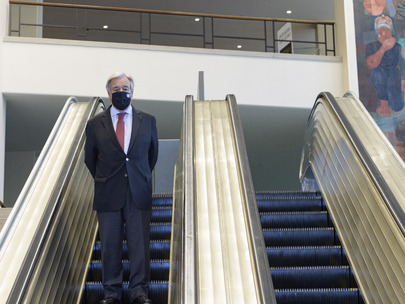
Letter to the Editor: Effects of Political Rhetoric on Immigrants in the United States

The views expressed in this letter to the editor are the author’s and do not necessarily reflect the views and/or opinions of American Model United Nations International or the 2020 AMUN Conference.
As tensions build to the upcoming 2020 Presidential Election, there has been an increased awareness of the rhetoric surrounding immigrants in the United States.
In his 2015 announcement for a presidential bid, then-candidate Donald Trump stated “When Mexico sends its people, they’re not sending their best … They’re sending people that have lots of problems, and they’re bringing those problems with us.”
Since then, President Trump has continued to make disparaging statements regarding immigrants, which have set the tone nationally: : immigrants are less than people and are to be feared, loathed, and shamed. While some might think these comments harmless, they are far from it. Rather they are harmful, disrespectful, and impactful to those who face tremendous hardship to migrate to the U.S. for a better life.
A testimony from Bahareh in Chicago, Illinois depicts this harm:
“I was born in Iran, and at the age of 10, my family and I absconded from the multi-systemic injustices and immigrated to the US in hopes of extended opportunities and freedom. I was about 3-years-old when the Iran-Iraq war started. My experiences as an immigrant child growing up in the US helped me gain an appreciation for the gift of life. This is because my immigrant story is tied to so much loss and despair….pain and anguish that has yet to heal 30 years later… Turning our backs on immigrant and refugee populations would mean we are no longer willing to nurture others like myself who have a chance to grow and contribute to what makes America already so great. I ask you to please continue to fight tyranny and injustice by keeping the conversation going.”
So how can the average American citizen improve a situation such as this?
- Speak up. Your voice is important to the American political narrative. Having crucial conversations with your loved ones, neighbors, and colleagues about positive interactions with refugees can make a difference in your community.
- Condemn hate speech. The international community has taken to condemning acts of discrimination and hate speech. It is also our responsibility to all of humanity to do the same in order to protect the sanctity of life.
- Vote. Vote in all elections, whether that be local, state-wide, or national. Voting is your opportunity to influence the political narrative in our multilevel government.
- Volunteer. Seek out volunteer opportunities where you can be exposed to the experiences and stories of immigrants coming into your community. This will provide you with a better understanding of their perspectives, hardships, and position.
Keep Up With The Accords
More to read
The AMUN Accords is a premier resource for fact-based Model United Nations simulations. We are always looking for new contributors. Want to write for the AMUN Accords? Check out out the submission guidelines and then get in touch!




